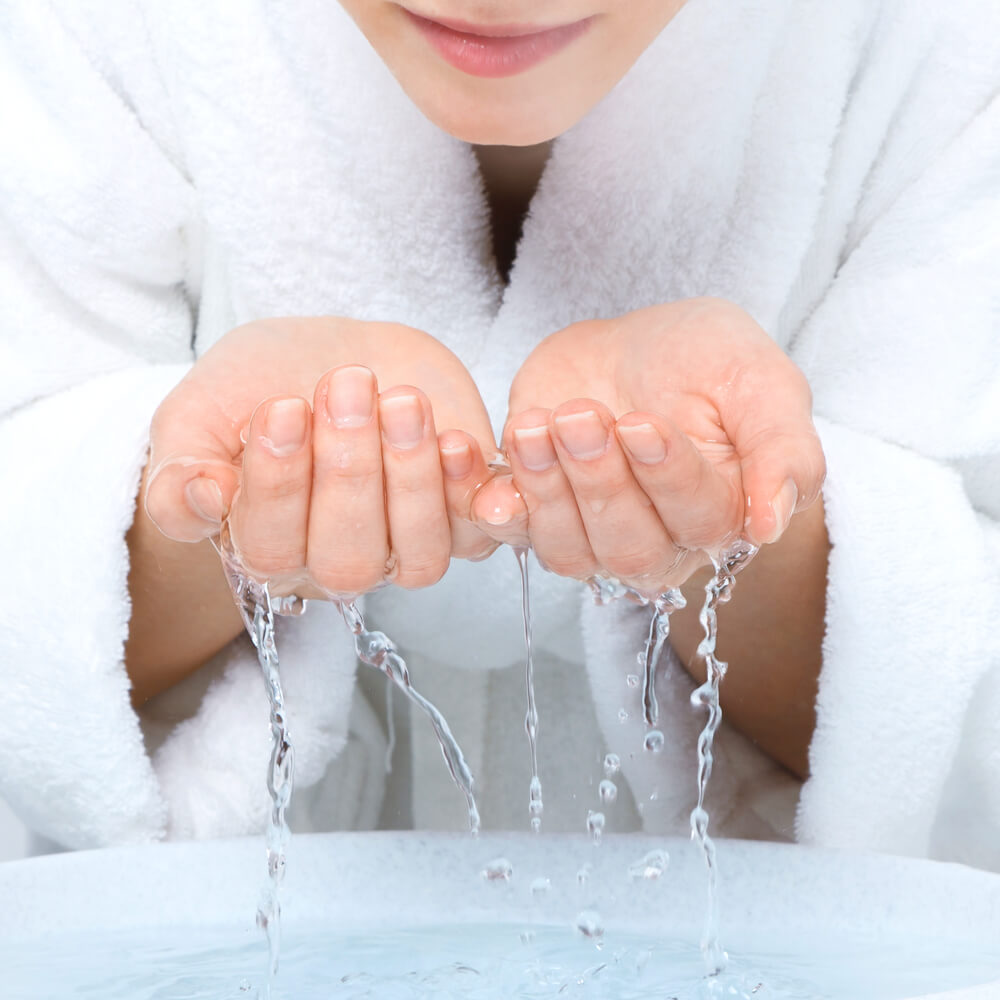Chlorine disinfects your drinking water and protects you from germs. However, chlorine itself is also a major contaminant. So, can the chlorine in your water harm you as well as protect you?
Is Chlorine Safe?
According to the CDC, chlorine is safe for most individuals at levels up to 4 parts per million. Occasionally, chlorine levels may exceed this due to a problem with your treatment plant. They may also fall too low, usually during a major weather event, resulting in a notice to boil water.
Many communities now use chloramine to treat water most of the time, but as it tends to leave a residue, they flush the system with chlorine regularly. Generally, chloramine is considered safer than chlorine.
Again, chlorine is generally safe at allowed levels. However, do not use chlorine in fish tanks without proper filtration, as it is highly toxic to fish and amphibians. People with certain medical conditions may also be sensitive to chlorine. Your doctor may recommend that you drink only filtered water. Some people also get a rash from exposure to high levels of chlorine, such as are used in swimming pools, but generally not from the levels found in drinking water.
That said, there are definitely good reasons to reduce the amount of chlorine you are exposed to. Indeed, there are some small concerns that exposure to chlorine byproducts increase your risk of certain cancers.
Why You Might Want to Filter Out Chlorine
Even if you are one of the majority of people whose system can handle the low levels of chlorine found in drinking water, you may still want to remove chlorine from your water.
First of all, that amount of chlorine is still enough to affect your water’s taste. Most people grow accustomed to the taste of chlorine in drinking water and stop noticing it over time. However, when they drink water without chlorine, they notice the superior taste right away. Improving the taste of your drinking water is good in and of itself, but also has health benefits. When your water tastes good, you want to drink more of it, making it easier to stay hydrated. Dogs and cats may also object to the chlorine taste in the water.
Second of all, as already mentioned, if you keep fish, amphibians, or reptiles, then they can be very sensitive to chlorine. All water in aquariums and habitats must be treated to remove the chlorine. This includes using tap water to top up an outdoor pond.
While chlorine in bathing water is not a problem, some people find it easier to install a whole house filter.
Chlorine and Water Softeners
Many water softening systems will also remove chlorine, generally by the use of activated carbon filters. If you have hard water, then you may not need any additional filtration to remove the chlorine from all of your water. However, the water softener itself does not remove chlorine, only larger particles.
You should talk to your vendor about whether the system you are considering also removes chlorine and what is best for you if you are concerned about chlorine in your water (or just want to improve the taste of your tap water). The easiest way is to ask for a system that includes activated carbon, which will also take care of a lot of other contaminants.
Conclusion
If you are concerned about chlorine in your water, especially if you also have hard water and other issues, contact Advanced Water Softening today. We can help you pick out a water softener that reduces chlorine in your water. Thus, ensuring safe, good-tasting water for you and your pets.






